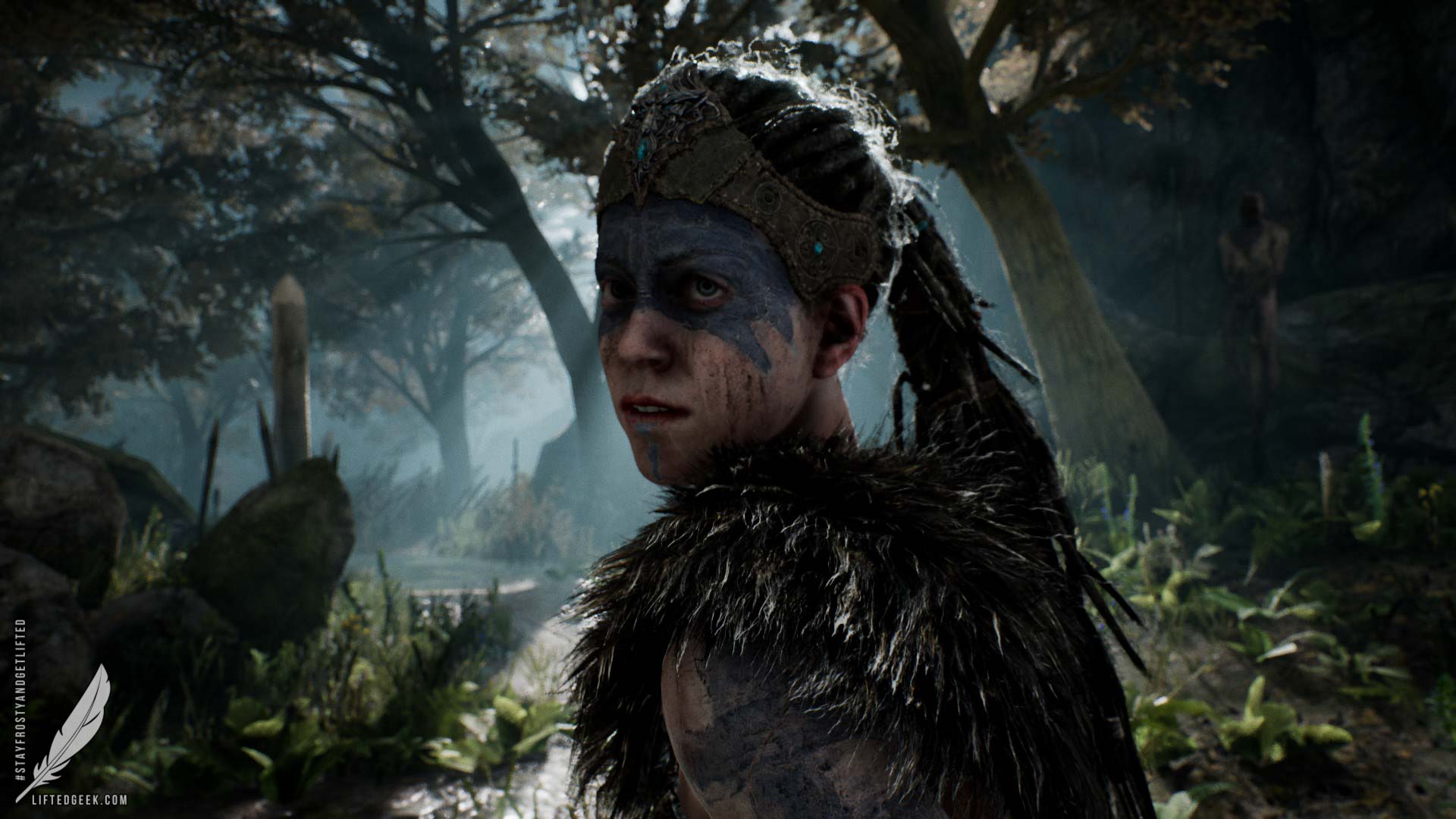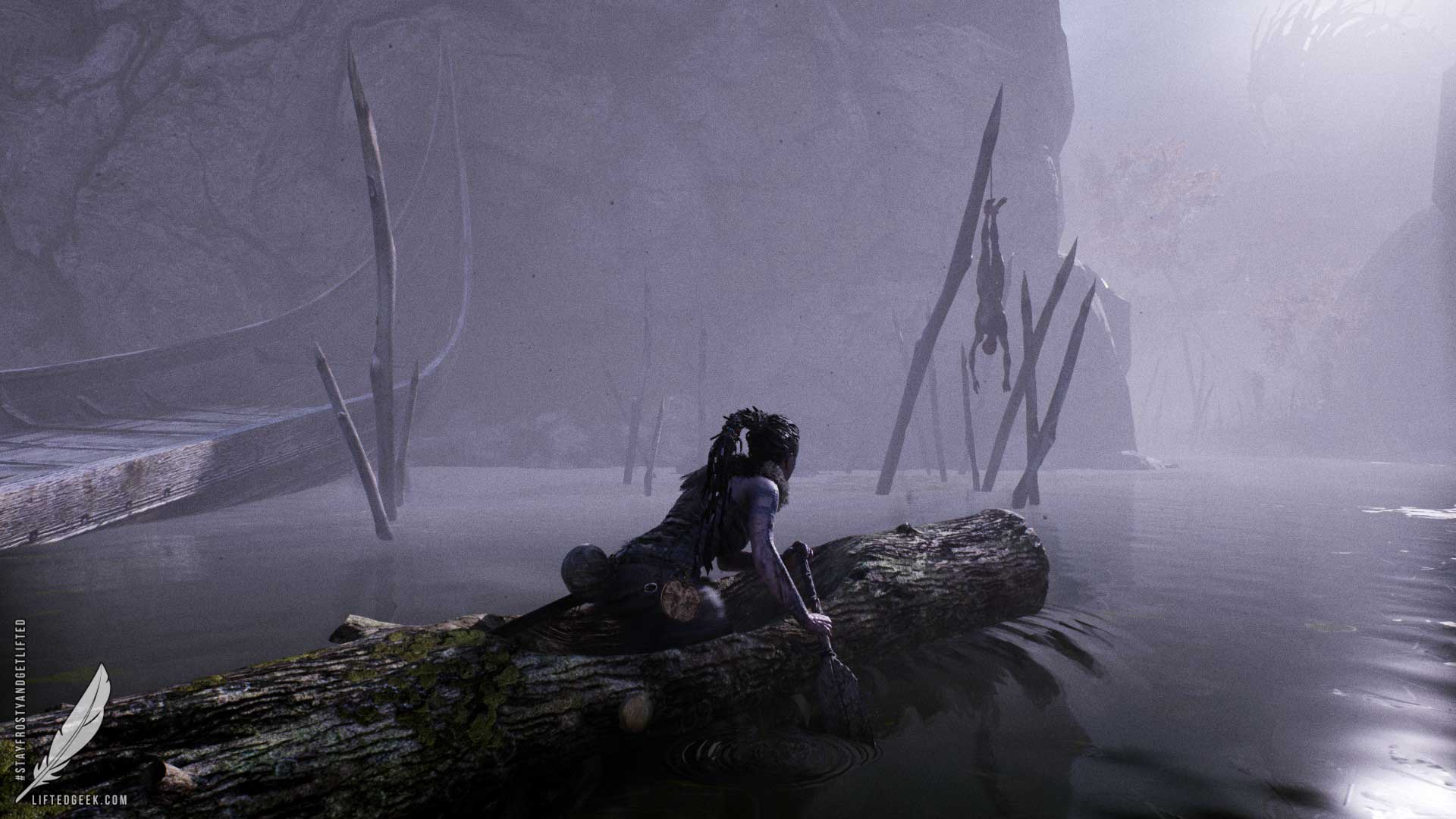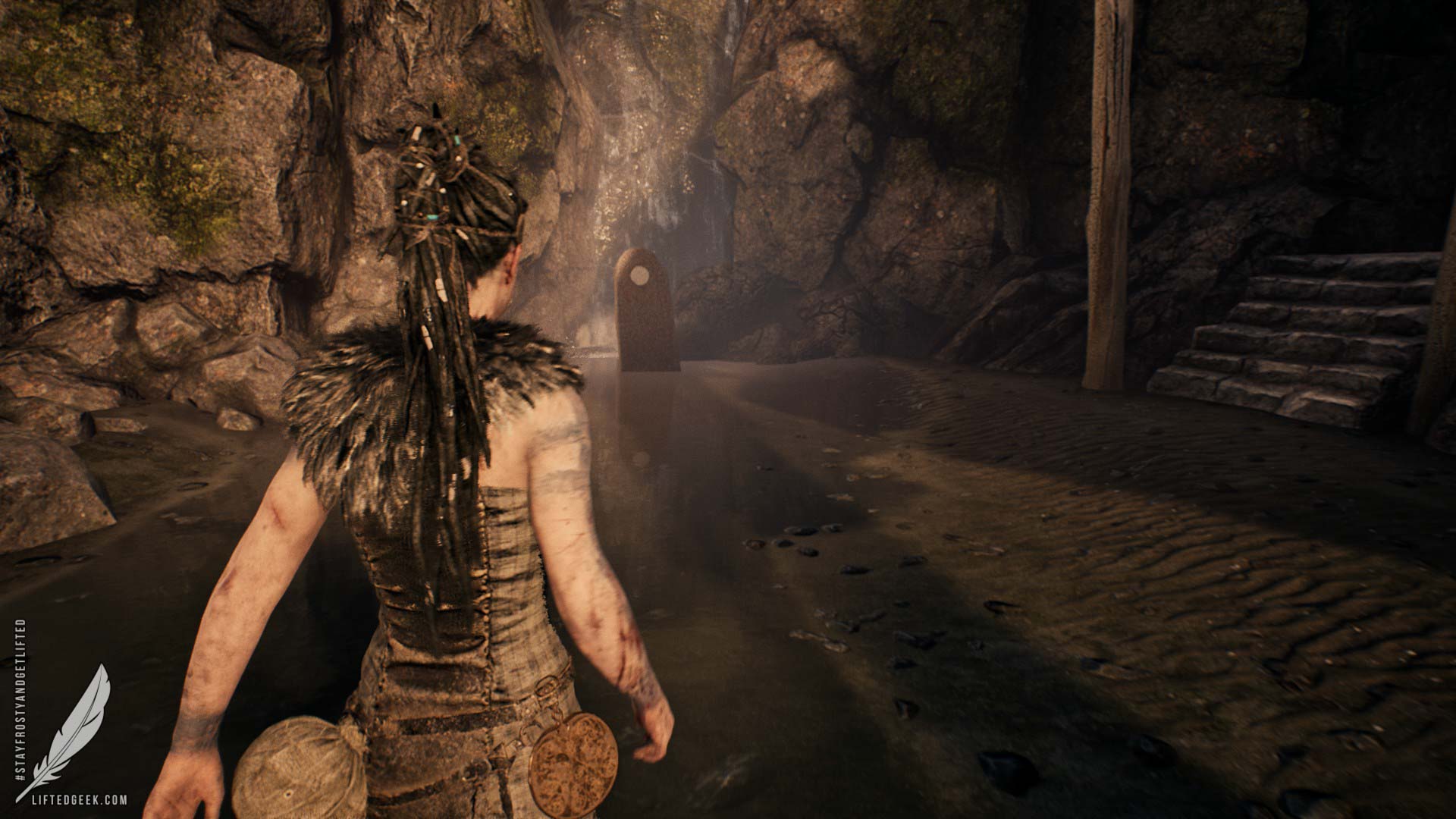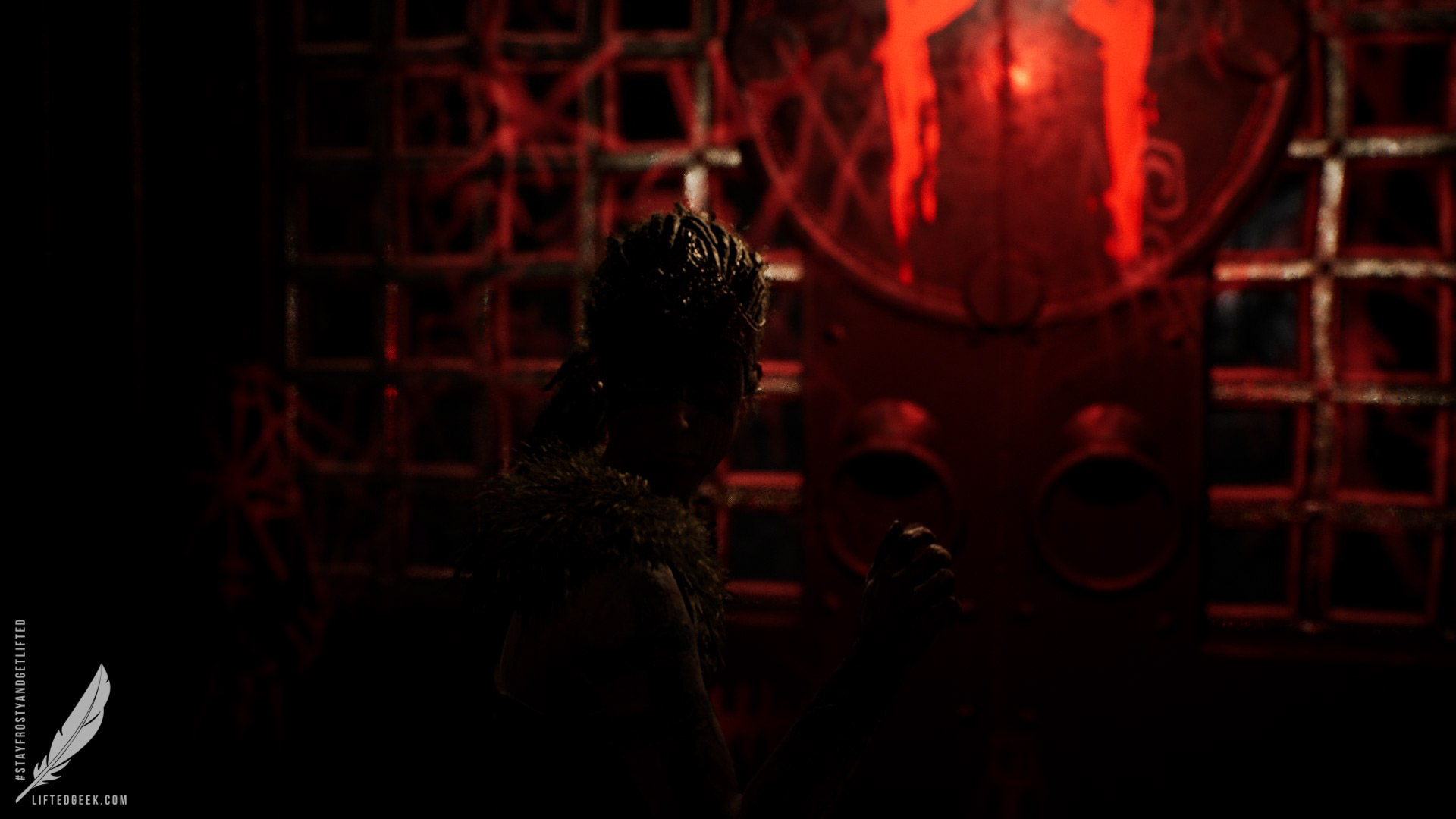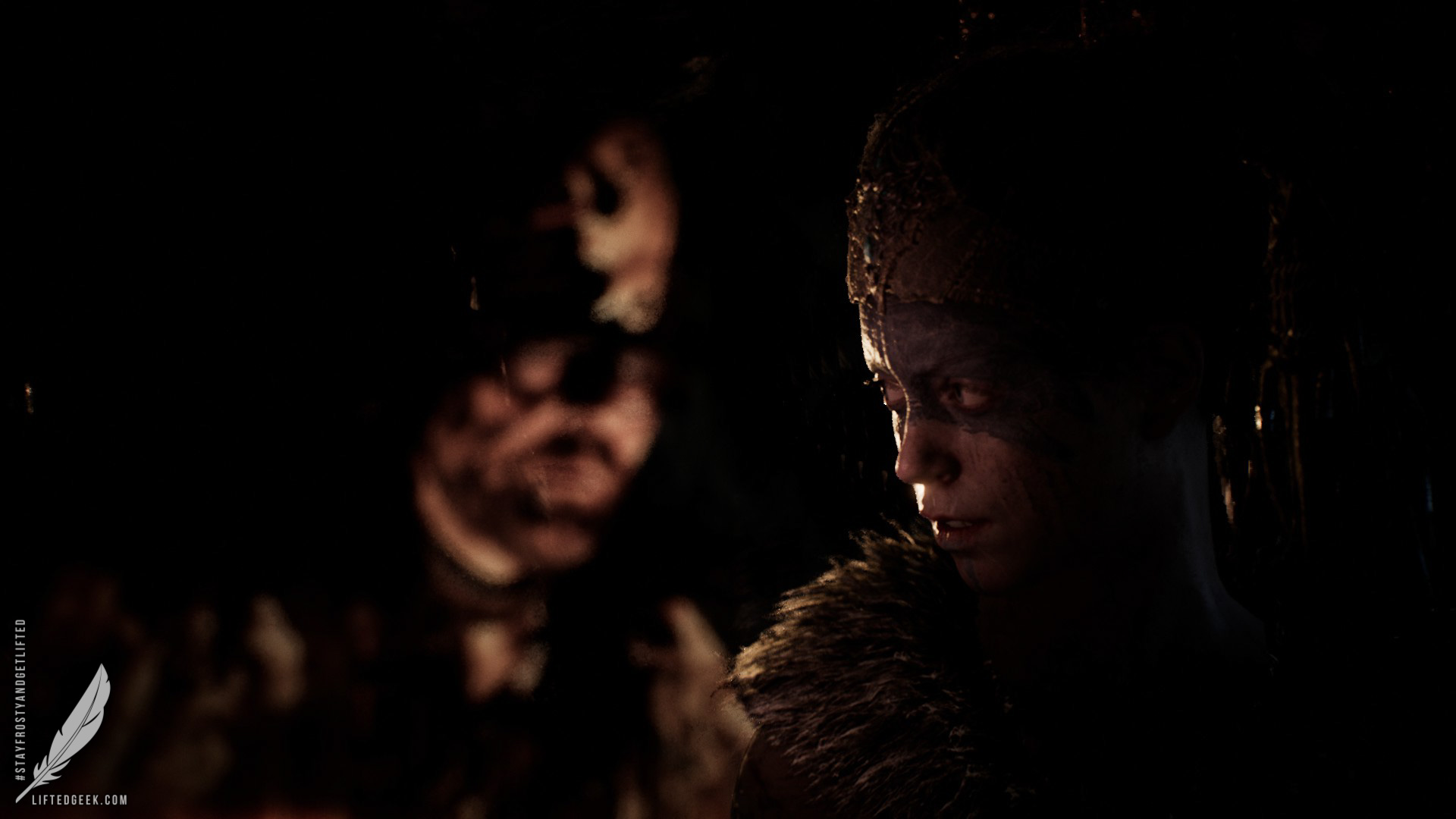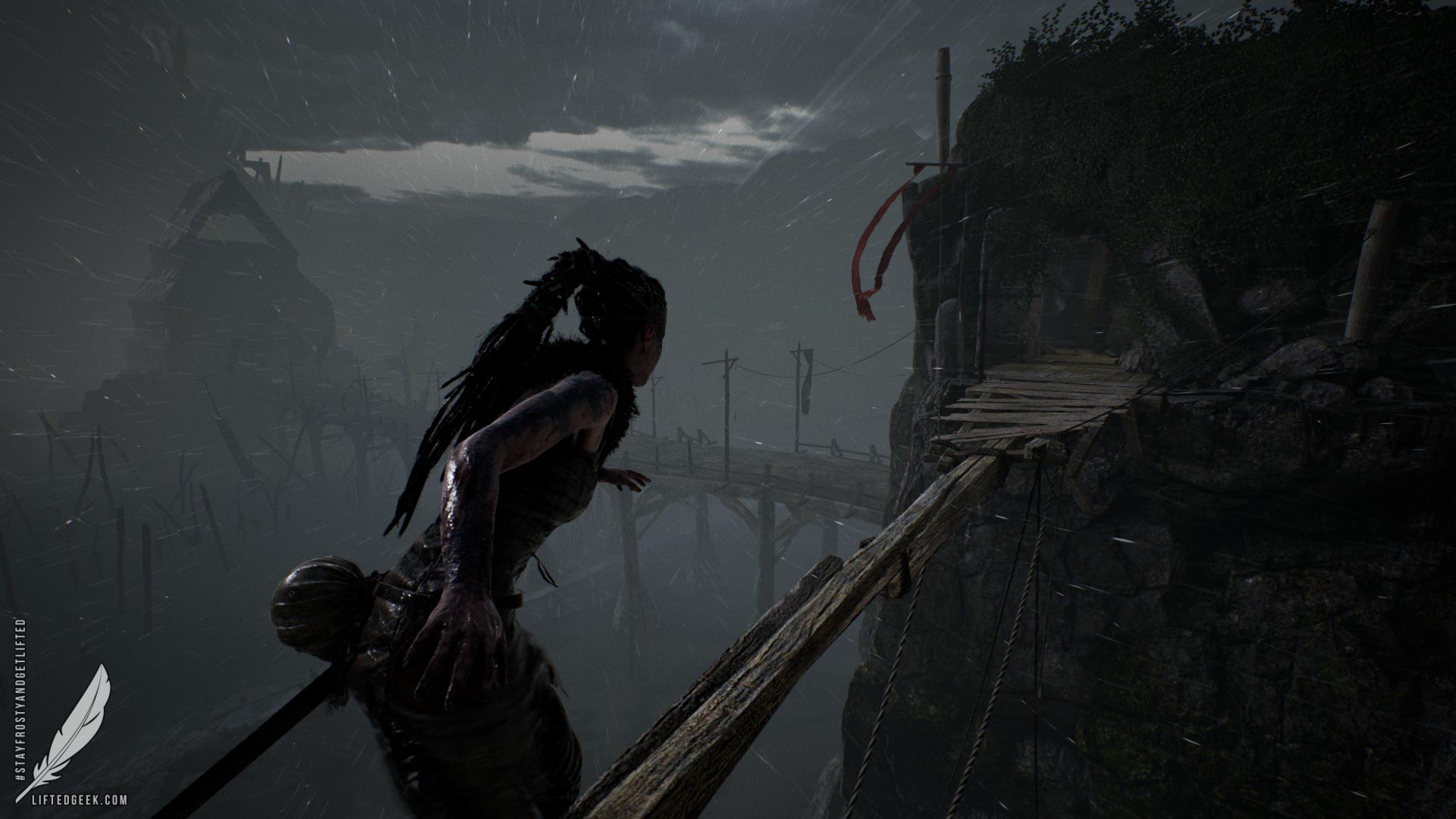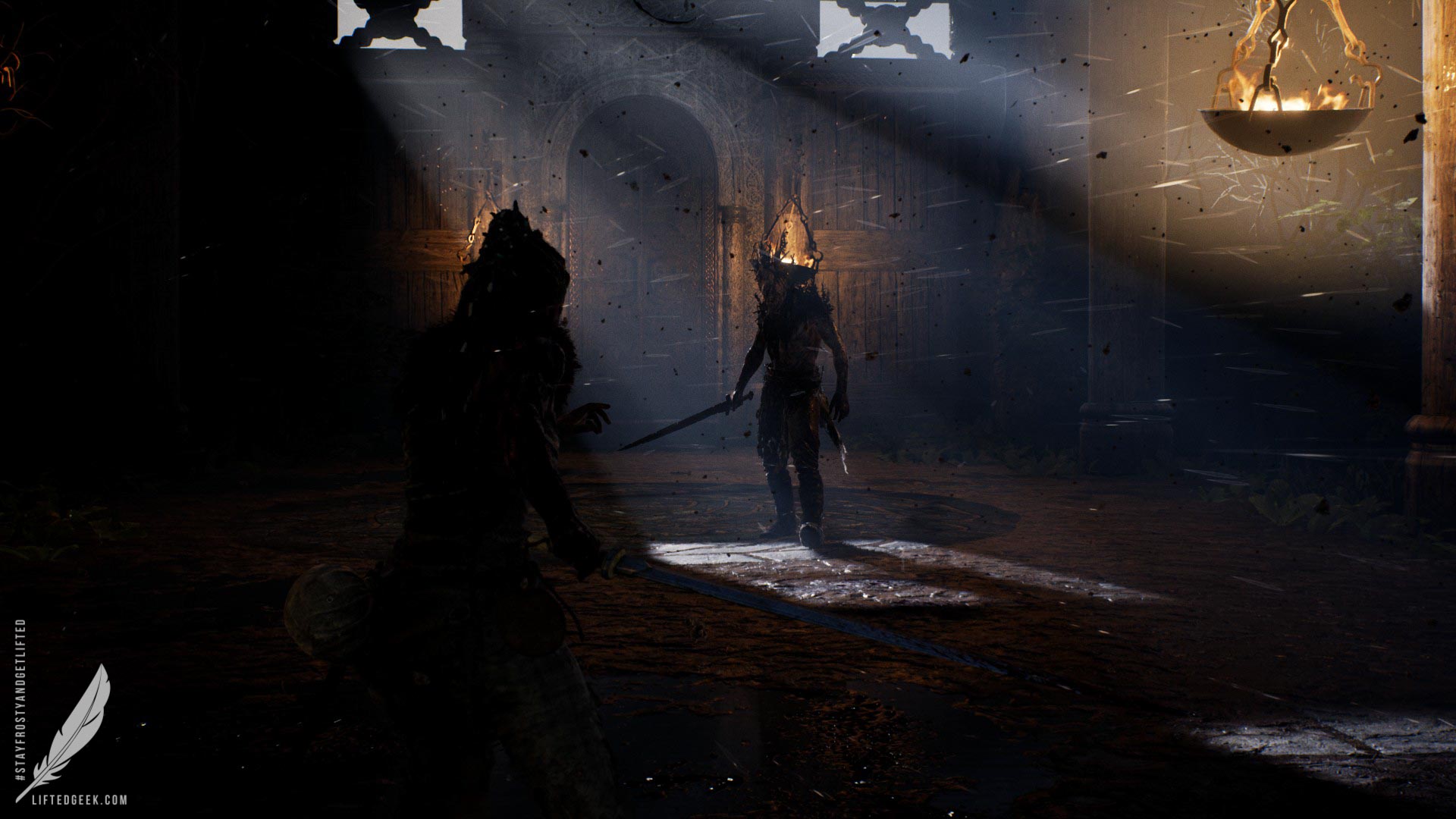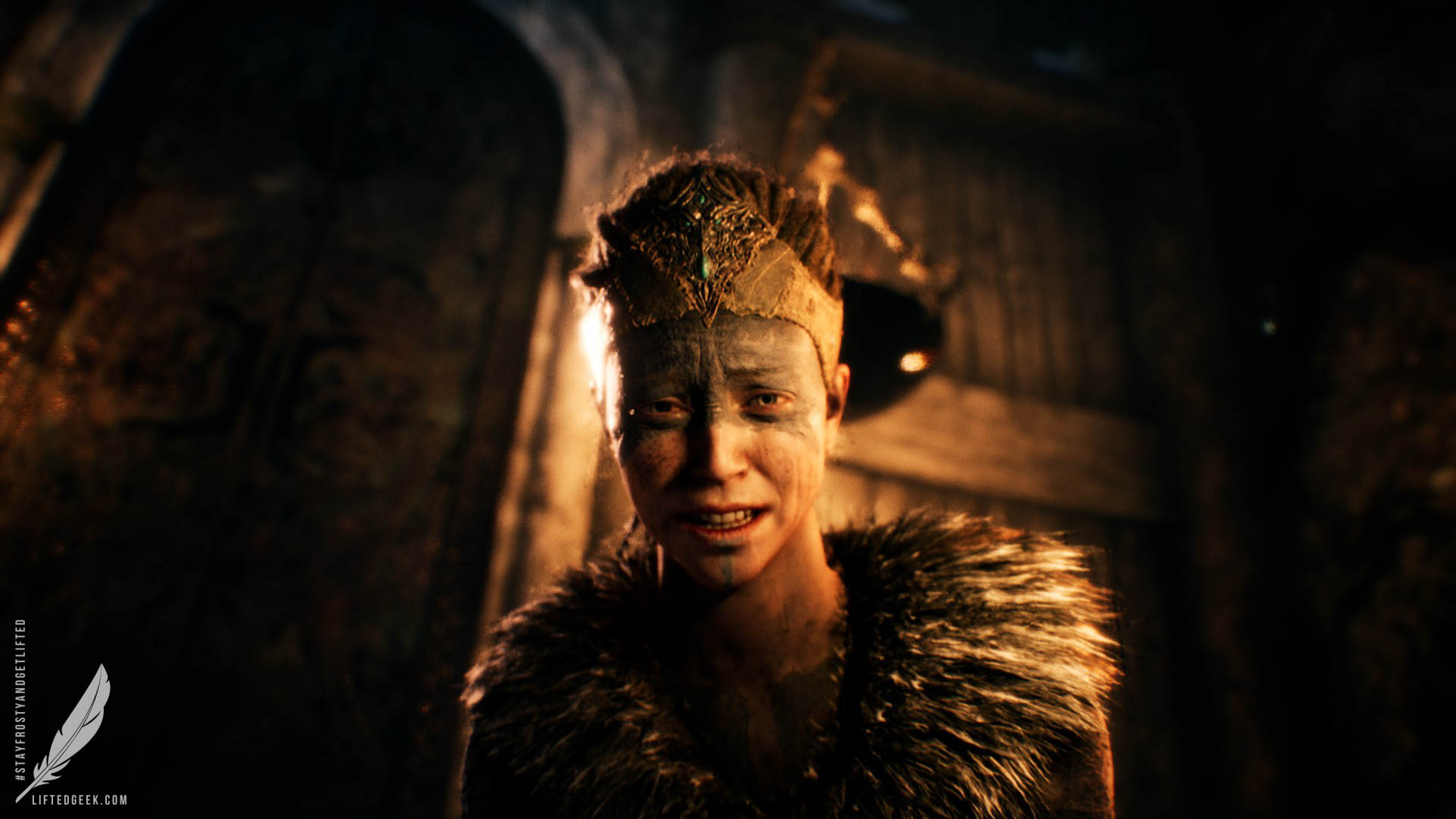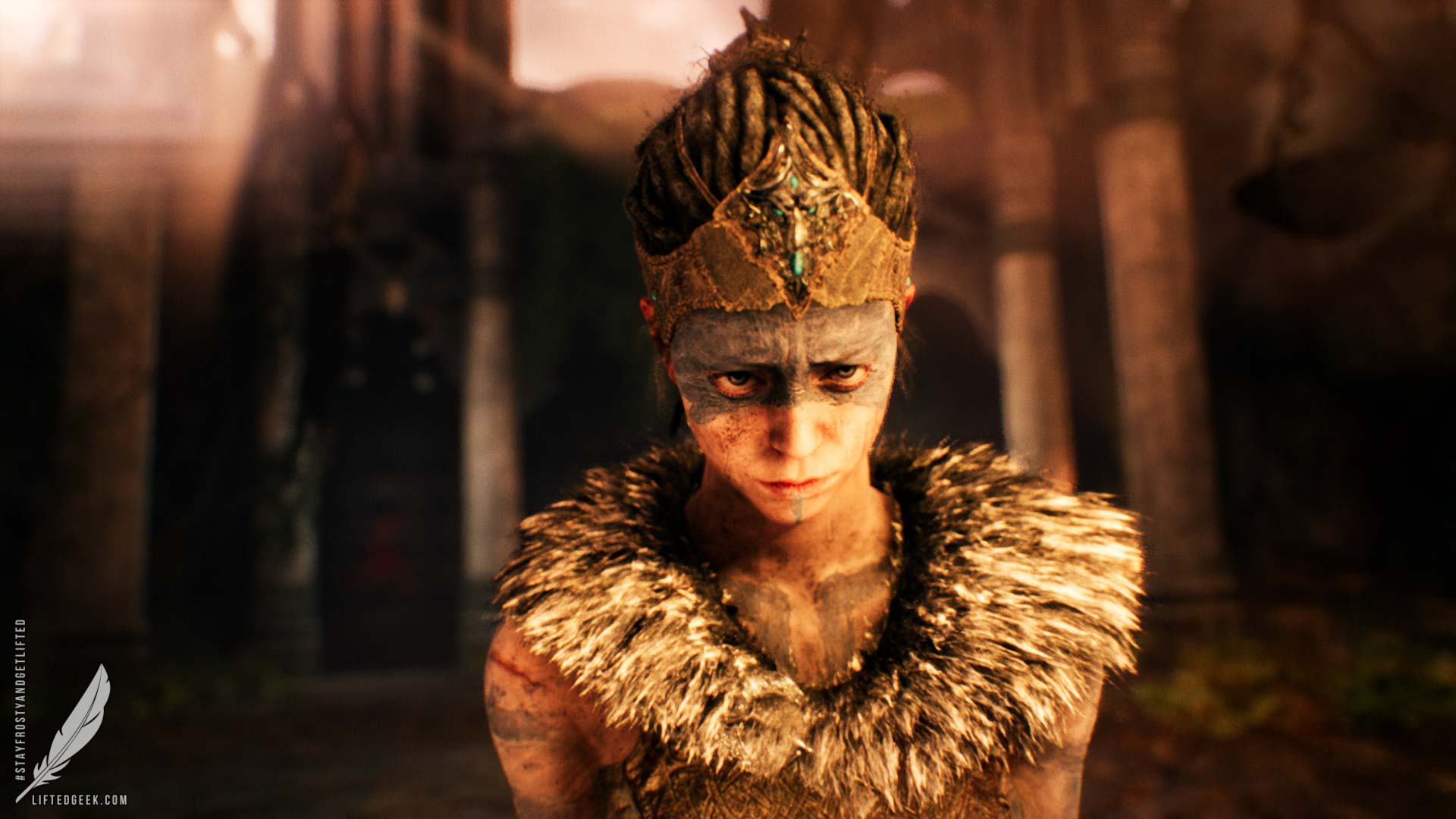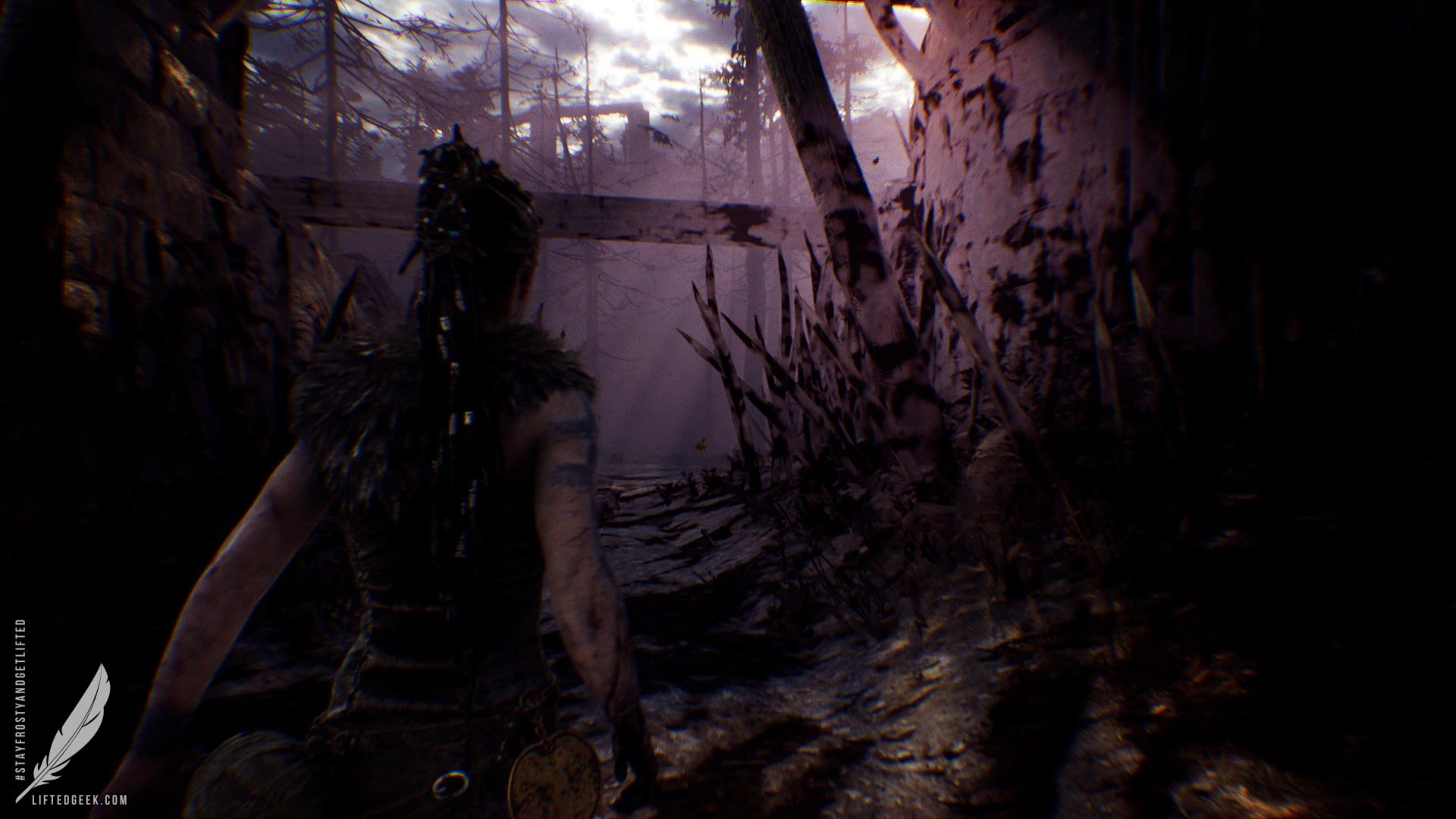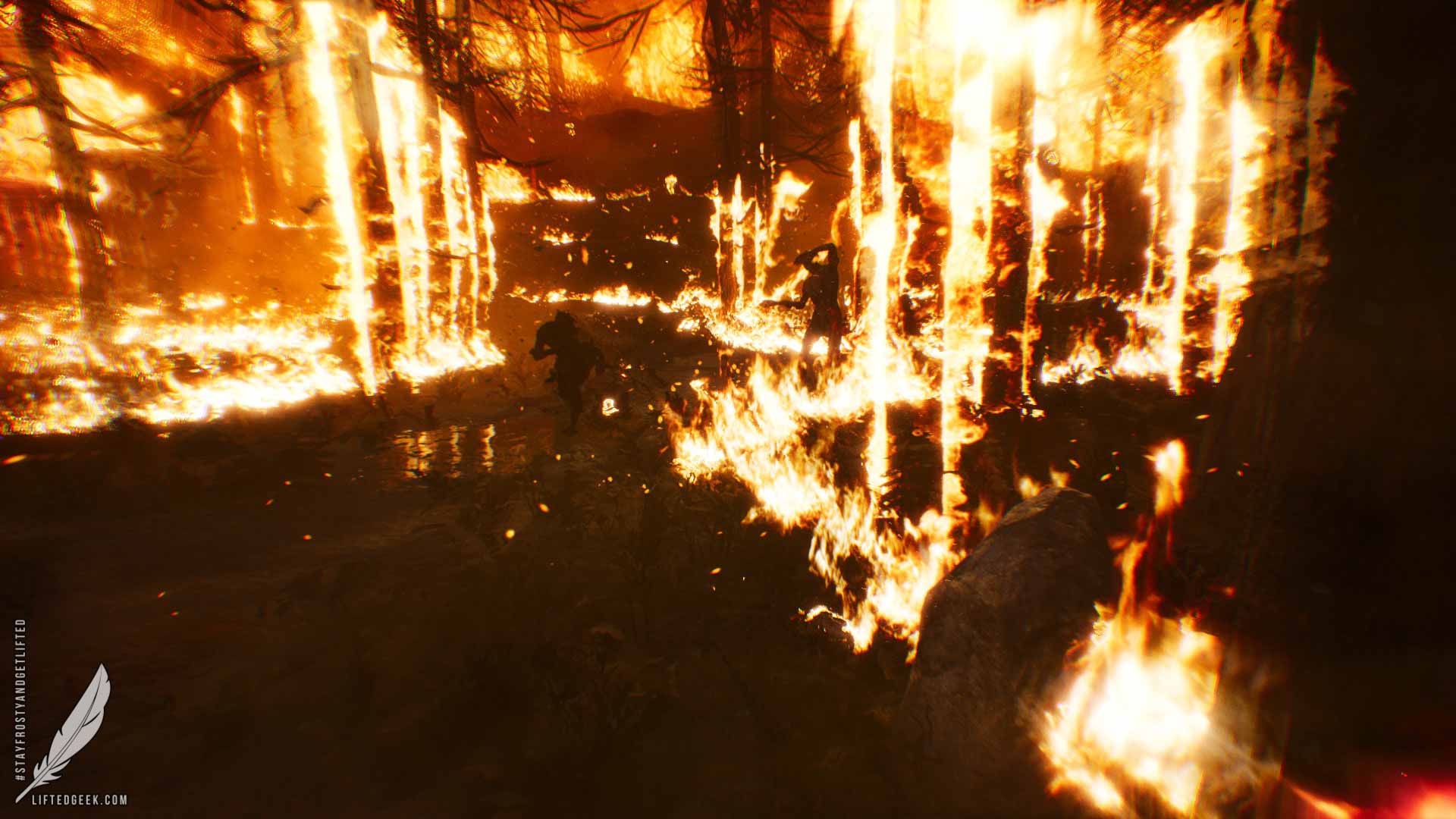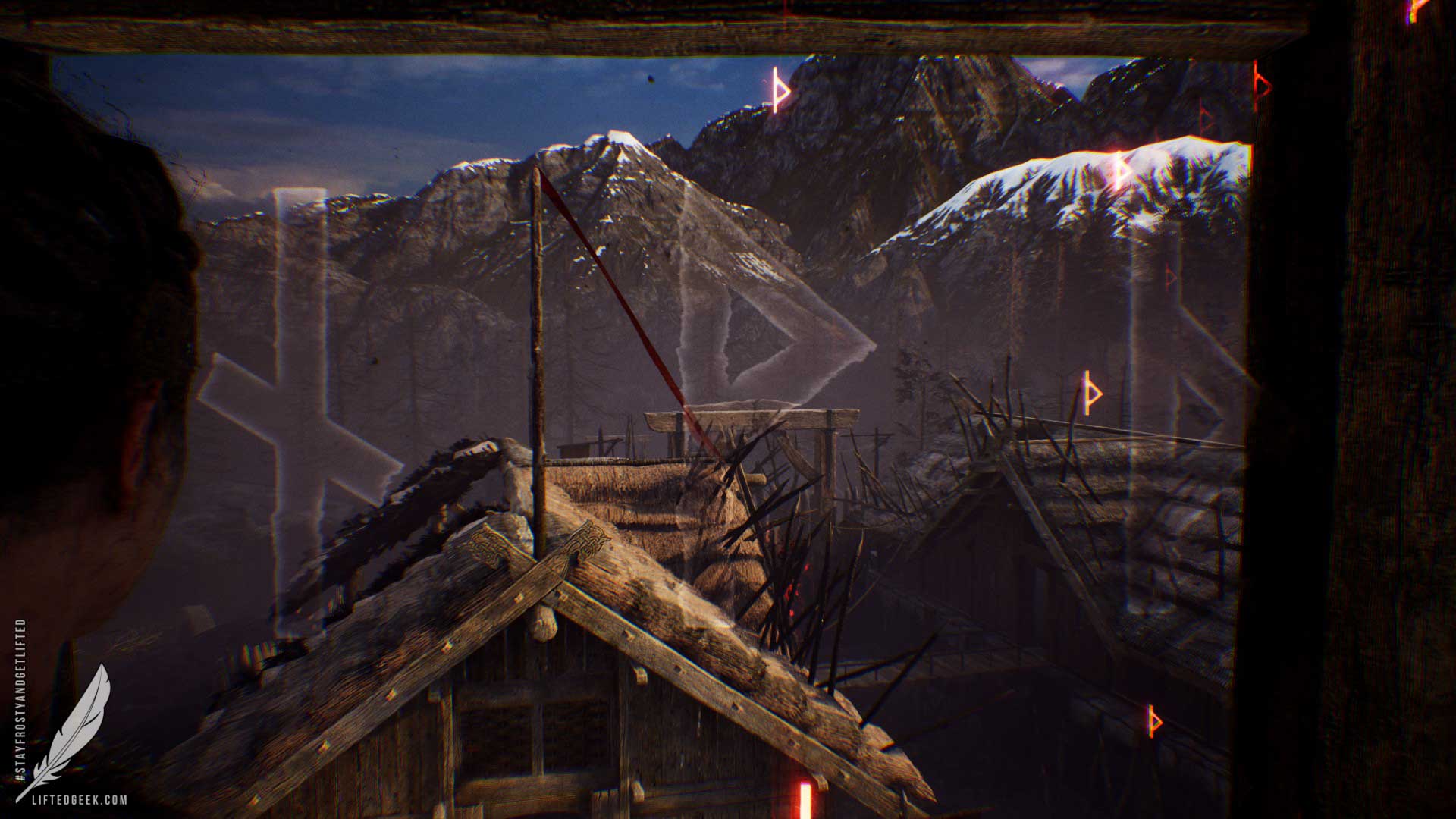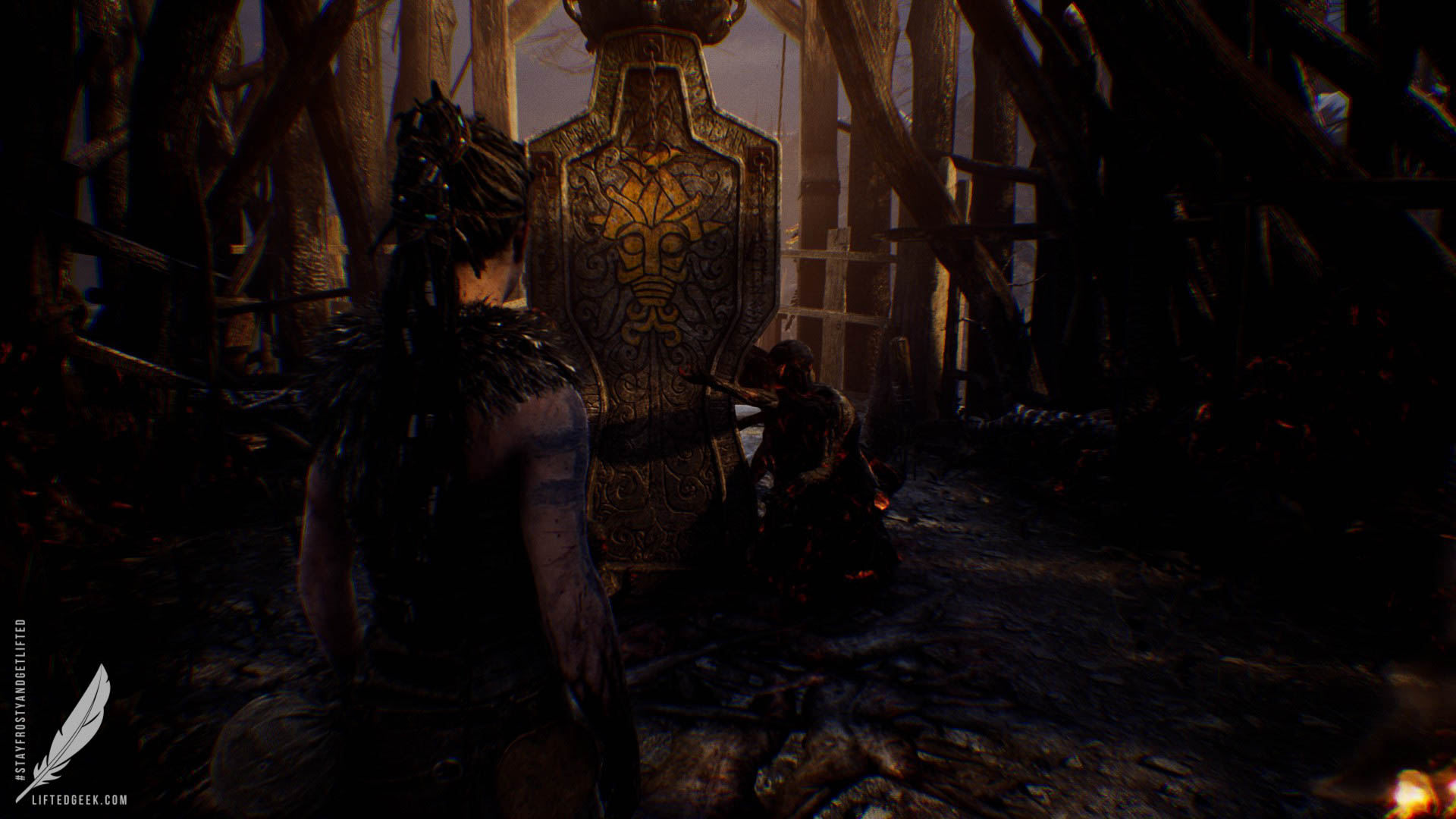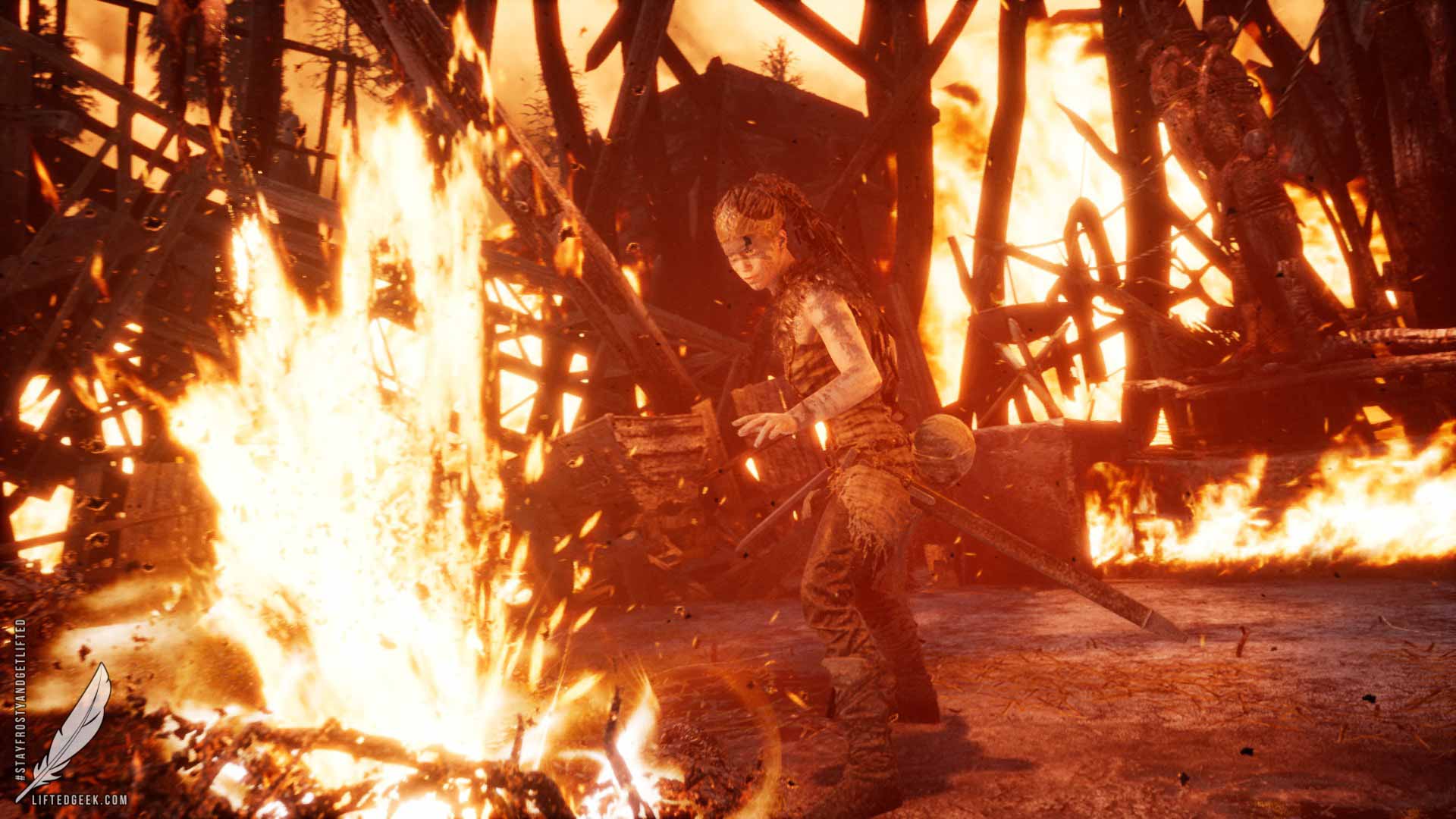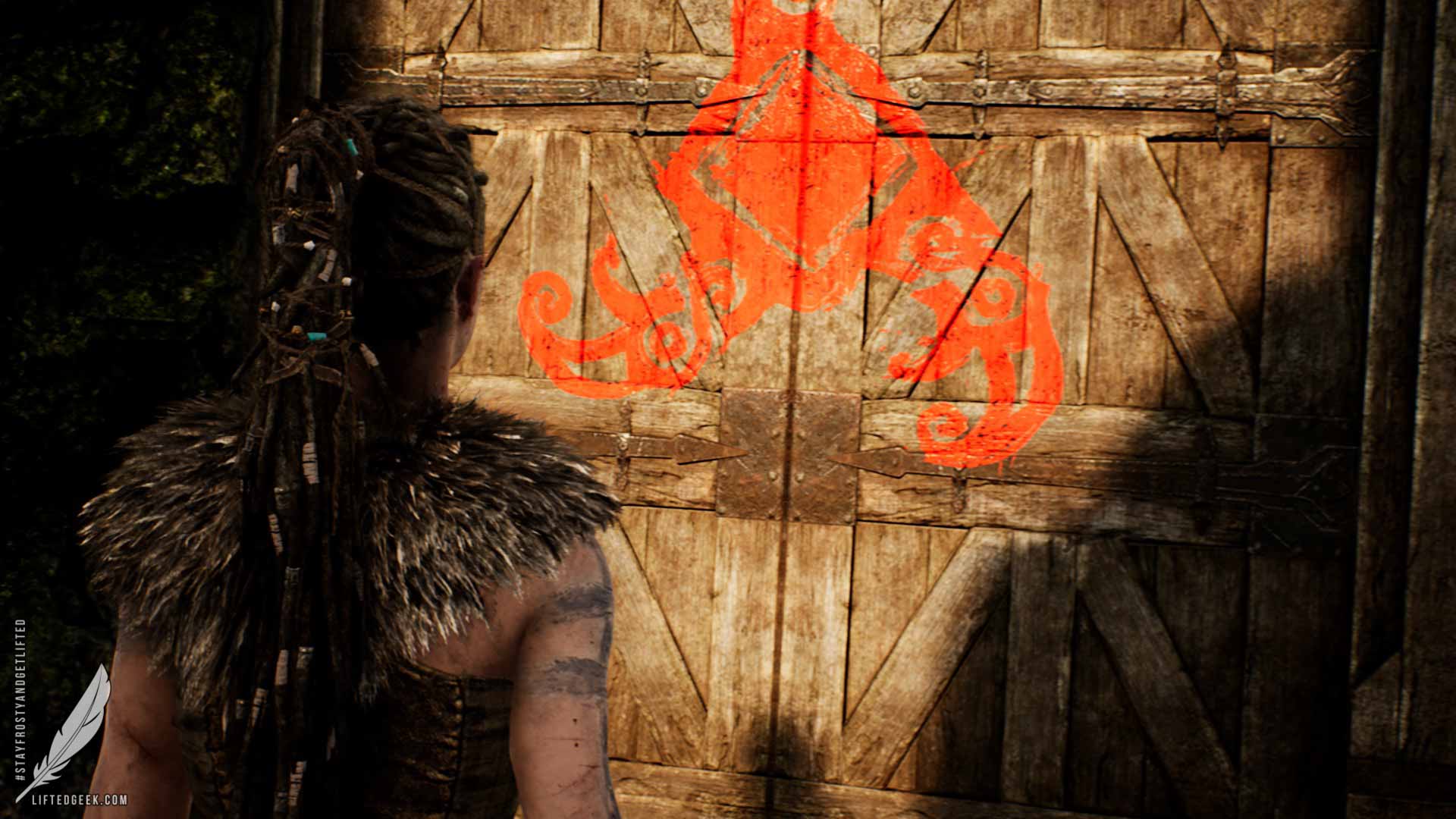To Hel and Back - Hellblade: Senua's Sacrifice (REVIEW)
written by Justin Prince (@prince_justin)
I found myself in an interesting place while playing through Hellblade, the six-plus hour playthrough was one I couldn't let myself binge. I found myself having trouble with playing for more than a couple hours at a time, something quite different from my usual approach to reviewing games... powering through it as fast as possible. Mind you... this slower pace isn't a bad thing, in fact... the bottom line is that this ended up being one of the main reasons I loved this game so much.
our titular protagonist Senua
Hellblade: Senua's Sacrifice comes from some serious gaming pedigree, developed by Ninja Theory (Enslaved, Heavenly Sword, DmC: Devil May Cry) they've described Hellblade as an “indie” game with “triple A” sensibilities. Hellblade is a game that must be experienced to truly understand.
Following the quest of the titular character, Senua embarks on a mission to the homeland of the Northmen in order to make her way to the depths of the Norse underworld, a realm called Helheim. Hellblade is teeming with everything from historical fiction to a healthy dose of mythology all wrapped in metaphor. These elements weave together to create a wonderful tapestry, a game which should stand as an example of when video games could be considered a viable art form.
Visuals are striking, from beams of light that pierce through foliage to shadows that seem to move in the corner of your eye. The sheer variety of hues paints a picture of conflict; Senua's trials take her to face off against much of the darkness Helheim has to offer as well as her own inner darkness. Prior to the events of the game Senua developed psychosis, a condition that dramatically alters her perception of reality. This psychosis is one that the player experiences as much as Senua does, Ninja Theory delivers this experience in the form of visual cues and binaural audio. Not a studio to walk in unprepared, Ninja Theory consulted with mental health experts to both approach Senua's mental illness accurately... and most importantly with respect.
“It’s a game I may never play again and that’s okay, one run was enough and personally... I don’t know if I can deal with the voices again”
literally facing hellish landscapes
Senua's story is one of strife; not just in regards to the things that go bump in the night, but strife within herself. Ninja Theory paints this picture with voices that constantly chatter in your ear, they suggest playing with headphones and honestly I second that recommendation. The use of binaural audio shines from the opening scene to the very last. Hellblade has no HUD, mini map, or quest indicators... something that forced me as a gamer out of my comfort zone and plunged me deep into Senua's struggle. The voices in your head talk to you, to each other, make snide comments, encourage you, warn you, and sometimes try to trick you. The game offers no tutorials and thrusts you into your first battle without much preparation. Thankfully, the pause menu does outline your controls... but how you use it is up to you. The voices sometimes act as your guide, telling you when to dodge and block... sometimes warning you... but this trust sometimes betrays you, warning of an imminent attack that isn't coming or prompting you to block when you should dodge.
The game's audio literally gave me nightmares, on my first night playing I powered through about three hours of gameplay... that night I barely slept a wink. While playing, it felt like someone or something was literally whispering in my ear and it was seriously frightening. Playing through Hellblade made me fearful, I felt like every shadow was watching me and even when there were no enemies I felt surrounded. The game's visuals further expanded on this sense of dread I felt around every corner, unnerving scenery coupled with the dread that one would expect when trying to get into the Nordic underworld.
the stuff of nightmares...
There are several lulls and the game moves at a crawl at times. When you aren't fighting you are solving various puzzles that range from simple tests of deduction to literal head scratchers that had me walking around searching for the slightest clue. Some puzzles I solved with ease, some taxed me to my absolute limits, while others I stumbled upon. Despite having an incredibly intuitive combat system, these moments are split up by so many calm moments I found myself getting more paranoid with each minute that passed.
The game apparently employs a system of perma-death. When you reach a certain point in the story, visualized by a black rot that appears on Senua's arm. Each time Senua falls in or out of battle the rot grows slightly, if the rot reaches Senua's head the game ends and your progress is deleted. Honestly, I personally have found no proof of this and died several times myself. This system could be present but triggered by an exorbitant amount of respawns... or this could be Ninja Theory attempting to instill that ever-present dread I felt with every encounter.
VERDICT
This is a game every gamer needs to experience and one that will stay with you long after the end credits roll. Hellblade: Senua's Sacrifice is pure bliss and crippling dread all at the same time. A masterclass in crafting atmospheric story telling and weaving it seamlessly with engaging gameplay. The sheer attention to detail Ninja Theory poured into this title shows how much this project meant to them. It's a game I may never play again and that's okay, one run was enough and personally... I don't know if I can deal with the voices again.
5 out of 5
A masterclass in game design! This is why I love video games so much!


